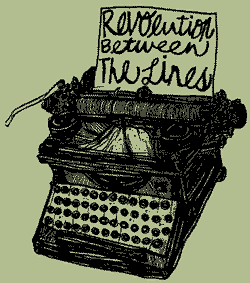I’m standing in my pale blue bathroom and staring at my reflection in the mirror, trying to gauge the image of the person staring back at me. I recognize myself, obviously. The thing is, this person in the mirror looks completely different than she did fifteen minutes ago. She has incredibly short hair.
My hair hasn’t been this length since I was one or two years old. Back then, it naturally grew into what resembled a bobbed mushroom top. This frock on my scalp now has been shaped and molded to look this way. I did it on my own volition. One day I just decided, “I really want to cut my hair.” So I did.
I run my fingers through my shag, and then rub them around, messing it all up like I’m giving myself a noogie. In some places the pieces stick straight up. Freaky.
When I walk back out into the living room, my once long locks lie in clumps on the hardwood floor, scattered like long strings of confetti. I sweep up the mess quickly, both to dispose of the evidence and because I’m late to work. I don’t feel remorse. Not yet. I see that pile of brunette hay in the trashcan as dead cells. Did my color always look that muted?
Later that day my roommate comes home and sees my new look. She’s very excited.
“You’re like Coco Channel when she cut her hair! What’s that her man-friend said? A woman who cuts her hair is a changed woman.”
Hm. A changed woman. I wasn’t really trying to be a “changed woman.” I kind of liked who I was.
A few days later, after work, where I had to explain to every other customer who came in the door why I chose to do this to myself (“I just felt like it,” I would say), I decide to go to the Buffalo Exchange to troll through the merchandise. I try on a pale purple skirt, tweed and high-wasted. It was probably made in the sixties. Yes, this will do. When I get to the checkout line I spot a thick wooly scarf and green Ray-Ban knock-offs. I quickly throw them on the pile. My new hair is speaking to me. “You need these new things,” it says. Apparently the hair feels changed and wants me to follow suit.
Later in the week it’s Homecoming, and a group of my college roommates plan a reunion dinner at PF Changs. I wear the scarf and the glasses. I also wear skinny jeans and a blue striped shirt. It’s kind of French. Find me that beret, and I could be in costume. Come to think of it, everything I wear lately feels a bit like a costume.
I’m the last to arrive, and all the girls are seated at a table next to the door. They see me, but no one says anything for a few long seconds. Perhaps they are trying to decide if my hair is tucked under the scarf or actually gone. Where is it?
“Oh my god, your hair!” Bonnie says.
I wait to speak. Here it comes. Good or bad. Hit me.
“I love it!” she says.
The girls take their queue from Bonnie, and the table erupts in feminine chatter.
“You look so professional!” they say. “You look like a journalist.”
Perfect.
On Thanksgiving I call my parents to say hello. My dad does his usually, “Miss you, love you, here’s mom.” Mom gets on the phone, and I ask her if she saw the picture of my hair that I sent to dad. I wonder if she’s avoiding the subject.
“Yes I saw it,” she says hesitantly. “It’s cute.”
There’s more to this, I think.
“Well, honestly, Rachel, it’s not my favorite. It looks a little, oh I don’t know, fifties.”
“Maybe that’s because I’m wearing a second-hand tweed skirt, and I hadn’t washed my hair in three days,” I say.
The front was practically sticking straight up, but I thought it looked cool. Artistic even.
“Well I just have always liked your long hair,” mom says.
Leave it to her to be brutally honest. I think she just fears the change.








